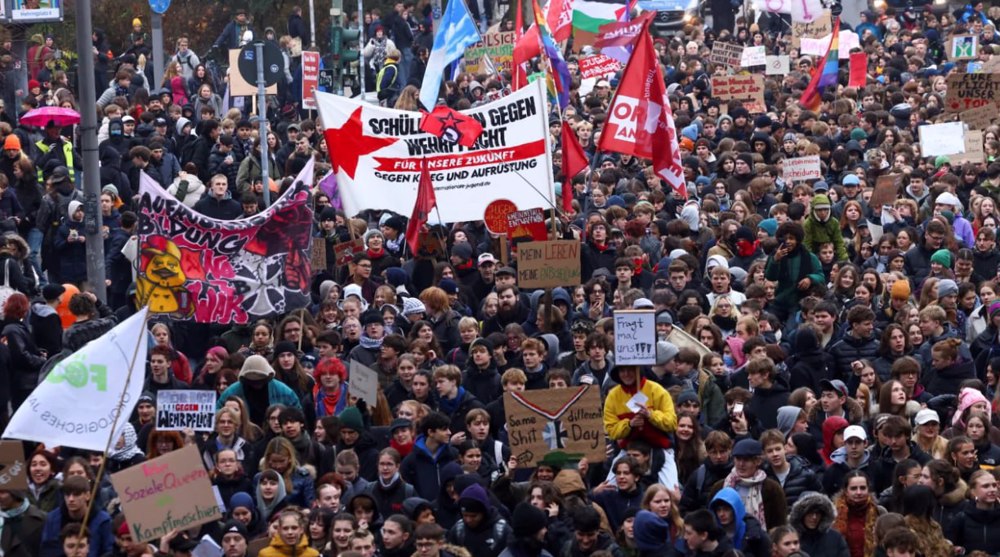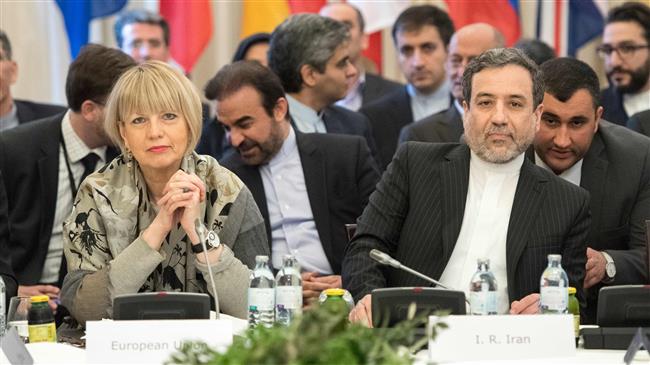Far-right AfD urges tighter rules for eurozone to prevent more pressure on German taxpayers
The far-right opposition party Alternative for Germany (AfD) has filed a parliamentary motion, urging Chancellor Angela Merkel to adopt a tougher line in dealing with proposed reforms in the eurozone to prevent the group from becoming a union with shared liabilities.
The AfD motion, presented to the German parliament Bundestag on Thursday, was aimed at an upcoming European Union summit where the reform plans, mostly proposed by French President Emmanuel Macron, are due to be discussed.
Merkel and Macron plan to present a joint statement on the reforms in Europe at the meeting in Brussels on June 28-29. However, politicians and economists in Germany are increasingly worried that the reform plans could put more financial burden on Germany, Europe’s largest economy, while the changes could ultimately pass the liabilities created by other countries on to German taxpayers.

Members of Merkel’s conservative alliance in the coalition government could join the AfD, the largest opposition party, in opposing the reform scheme as they have previously voiced concern about increased risk-sharing among eurozone members.
Many of the opponents believe Macron’s ideas for increasing the power of eurozone’s ESM rescue fund, which he wants to be turned into a European Monetary Fund (EMF), would further strain the German coffers. They say an EMF with the authority to give short-term credit lines to members hit by sovereign debt troubles would mean more bank insolvencies, a burden that should be shared by taxpayers in Germany.
“The EMF would basically be a bank in which the finance ministers decide on policy, the bank can decide how much money it has and the bank can decide to whom it gives money and on what conditions without it being subject to a banking supervisor,” AfD lawmaker and member of the parliamentary financial committee Bruno Hollnagel said, adding that an EMF proposed by Macron would undermine the national parliaments’ financial sovereignty by transferring funds around the bloc.

Hollnagel, who focuses on eurozone issues, said the EU reform plans also included a common backstop for failing banks, a scheme he called “irresponsible” as it would give the banks the assurances that they could take inappropriate risks and get funds from the ESM or EMF.
In its motion presented to the Bundestag, the AfD has called for the removal of supervisory capacities from the ECB, the European Central Bank. The proposal is based on the idea that the ECB has not enough independence as a lender to supervise national banks.
Hollnagel said Macron’s other ideas for eurozone reforms, including setting up a eurozone budget, would also be to the detriment of Germany.
“It’s about opening a new channel for transfers — they want to have another new source of money,” said the AfD lawmaker, adding that such schemes would ultimately make Germany foot the bill.
IRGC intelligence announces arrest of Mossad-linked operative
FM on US, Israel role in riots: Arson ultimately burns arsonists
VIDEO | Trump’s second term and global nightmare
VIDEO | Iran slams US support for riots
VIDEO | Iran's foreign minister concludes two-day visit to Lebanon
VIDEO | Press TV's news headlines
Pezeshkian: US wrong to assume its tactics elsewhere can work in Iran
VIDEO | Armed rioters torch Tehran infrastructure overnight













 This makes it easy to access the Press TV website
This makes it easy to access the Press TV website